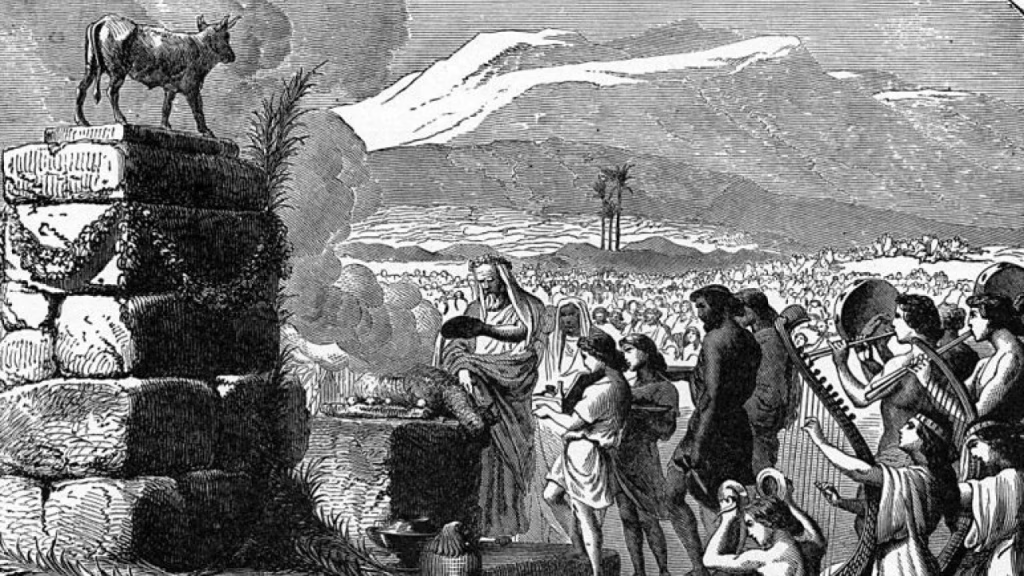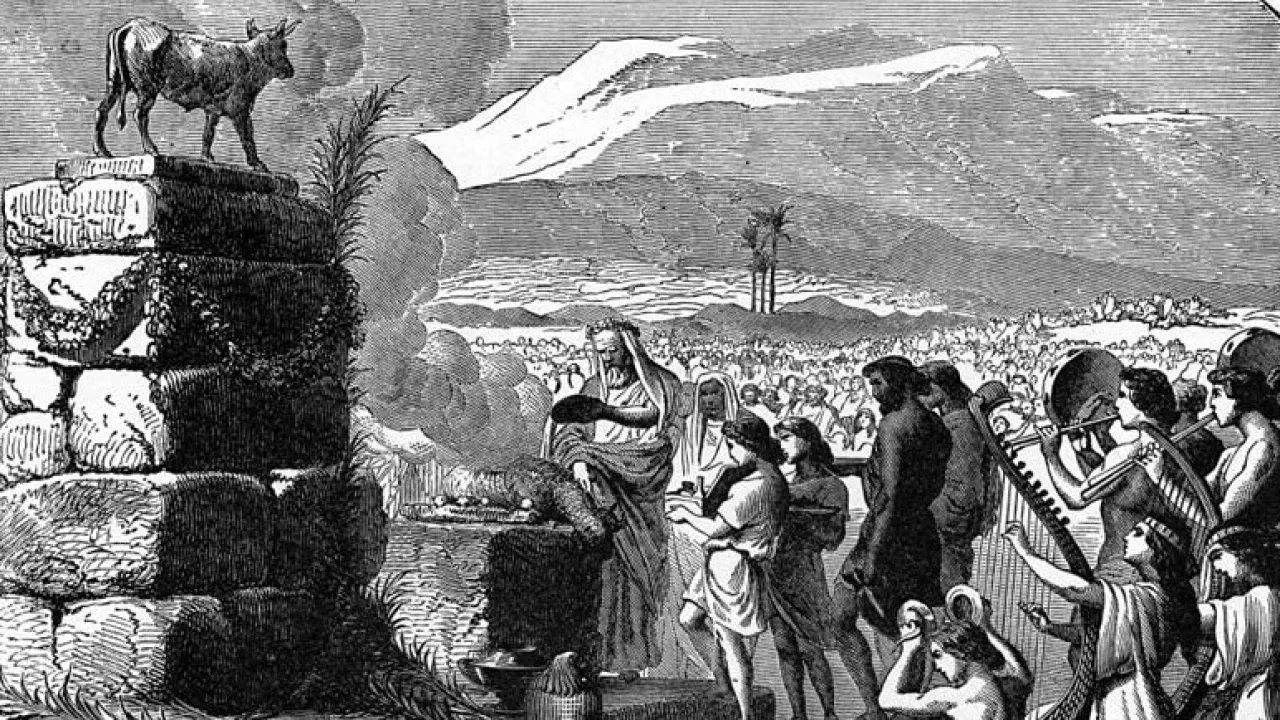
Israel and Judah worshiped Yaweh in a compromised way that included the worship of deity via statues. This is what happened when Aaron first instituted the golden calf to worship Yaweh – note that Israel was not worshiping other gods, they were worshiping the one true God via a statue. John Sailhamer offers the following exegesis of the incident in Genesis 32:
The Hebrew text of the narrative is somewhat ambiguous about the intention of the golden calf. Did the calf represent “other gods” that Israel was now seeking to follow, or was it rather an attempt to make an image of the one true God, Yaweh? In other words, did the golden calf represent polytheism (worship of many gods) or idolatry (physical representation of God)? It is possible to translate the passage to reflect either view. Thus we must look to other features of the text and context for a solution.
Two immediate factors in the text affect the interpretation of the expression. First, the Hebrew word ‘elohim can be understood and translated either as a plural noun (“gods”) or as a singular (“god/God”). Only the context in most cases will determine which sense is intended. In many instances when the plural “gods” is intended, the verb used with the noun will also be plural. Since the verb in this passage is plural, the NIV has rendered the Hebrew noun ‘elohim in the plural: “These are your gods, O Israel, who brought you up out of Egypt” (32:4). Often, however, the sense of the noun ‘elohim is clearly singular and should be translated “God,” even though the verb is plural. In the book of Nehemiah, for example, this very passage is quoted and the singular verb is used, showing that the translation was taken to be, “This is your God who brought you out of Egypt” (Ne 9:18). The book of Nehemiah thus understood the sense to be singular. Appropriately, in that passage, the NIV rendered it with the singular.
Second, the Hebrew expression “other gods” or “gods” is often, if not always, used specifically as a term for idols and not, as we might have expected, for “other gods” per se. In Deuteronomy 28:36, for example, the expression “other gods” clearly refers not to other deities as such but to “gods of wood and stone,” that is, idols. It is widely recognized that the biblical writers had little tolerance for the concept of other deities existing along with the one true God. The expression “other gods” or ‘elohim (plural) meant simply physical images or fetishes.
In the present passage the term gods, or rather god, represented in the golden calf, seems to be understood as an attempt to represent the God of the covenant with a physical image. The apostasy of the golden calf, therefore, was idolatry, not polytheism. Indeed, throughout Scripture Israel was repeatedly warned about the sin of idolatry.
Several points in the narrative suggest this conclusion. First, that the people wanted Aaron to “make” a god(s) for them (v. 1) shows that the term ‘elohim was understood as something that could be made–an idol, not a deity as such. For example, the same expression is used in 34:17, where the sense is clearly that of making an idol. In the present chapter, as well, Moses called the calf “a god of gold” (v. 31). Clearly, he saw the calf as an idol. Second, the Hebrew word for “idol” is actually used in this passage to describe the “god” that Aaron made: “He took what they handed him and made it into an idol cast in the shape of a calf” (vv. 4,8). Third, Aaron fashioned only one golden calf. It is not likely that one calf would be called “gods” in the plural if actual gods were to be understood. Thus the reference to a single calf suggests that it represented one god/God and not many gods. Fourth, the “god” (‘elohim) which Aaron made is always referred to with the singular pronoun “it.” Finally, the celebration of the making of the golden calf is called “a feast for the Lord” (v. 5). Thus the Israelites saw the calf as a representation of the Lord rather than another deity.
